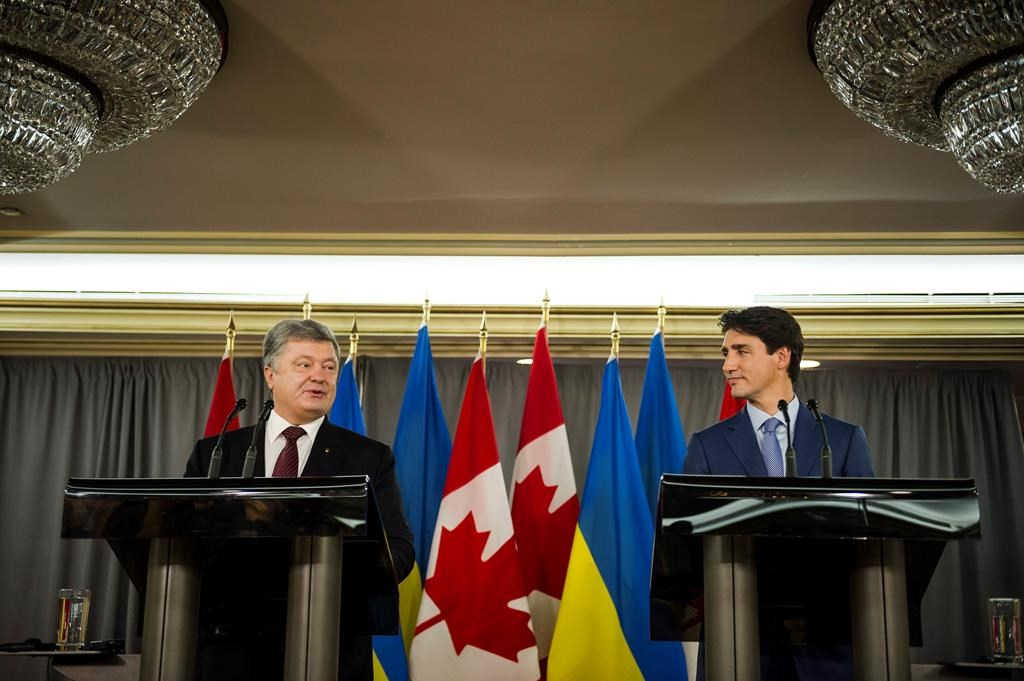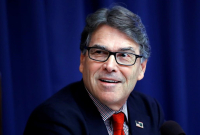Support strong Canadian climate journalism for 2025
The Trudeau government is opening the door to the export of Canadian-made weapons and ammunition to Ukraine in what is being touted as a sign of Canada's enduring support for the battle-scarred country.
Foreign Affairs Minister Chrystia Freeland announced Wednesday that Ukraine has been added to the Automatic Firearms Country Control List, which is a list of countries eligible for arms exports.
The move means Canadian companies and individuals can now apply to the government for permission to export prohibited weapons and other equipment to Ukraine, which was previously banned.
"The addition of Ukraine to the AFCCL reflects the close ties our countries share," Freeland said in a statement.
"Canada and Canadians will continue to stand with the people of Ukraine and support Ukraine's territorial integrity and sovereignty."
The decision is almost certain to be welcomed by the Ukrainian government, which has appealed to countries like Canada for more help as it grapples with Russian-backed separatist forces in the east of the country.
Top of the list has been the provision of arms, which Ukrainian officials say are required to level the battlefield in the Donbass region, where Russian military equipment has been spotted.
But Ukraine's addition to the firearms control list could stoke criticism from anti-arms-trade campaigners, given concerns about human-rights abuses by both sides in the Ukrainian conflict, which first started in March 2014.
More than 10,000 people have been killed in the fighting, many of them civilians. Another 20,000 have been wounded and hundreds of thousands have been forced from their homes.
Ukraine is the 40th country on the list, which is dominated by NATO allies but also includes Australia, Botswana, Chile, Colombia, Finland, Israel, Kuwait, New Zealand, Peru, South Korea, Sweden and Saudi Arabia.
Companies and individuals must seek permission from the foreign affairs minister before exporting a prohibited item to one of the countries on the list.
Approved exports to some countries on the list have landed the government in hot water in recent history, notably a $15-billion contract to sell light armoured vehicles to Saudi Arabia in 2014.
The deal has since sparked concerns about Saudi Arabia's human-rights record and that the Canadian-made military equipment could be used against civilians in the Middle East kingdom and neighbouring Yemen.





Comments